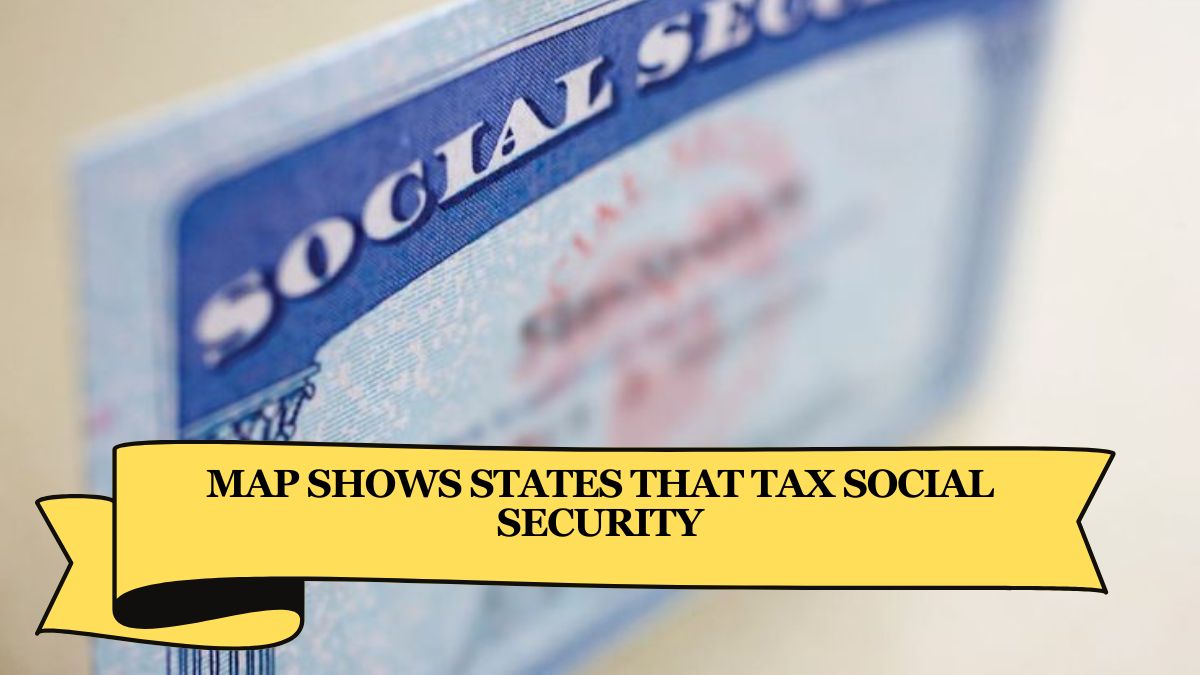Social Security benefits are a crucial source of income for many retirees. However, not all states treat this benefit the same way when it comes to taxation. While 41 U.S. states do not tax Social Security benefits, there are still 9 states that impose taxes on them. These taxes can affect the financial stability of retirees, so it is important for those who rely on Social Security to understand how their state taxes these benefits.
In this article, we’ll look at the states that tax Social Security, what the exemptions and credits are in place, and the political movements aiming to change the tax situation at the federal level. By the end, you’ll have a better understanding of the tax landscape for Social Security benefits across the U.S.
States That Tax Social Security
Although the majority of U.S. states don’t tax Social Security benefits, there are some states that do. These states include Colorado, Connecticut, Minnesota, Montana, New Mexico, Rhode Island, Utah, Vermont, and West Virginia. In these states, the tax rates vary depending on the income levels of the person receiving the benefits.
Some states, like Colorado, Connecticut, and Vermont, offer exemptions for lower-income retirees, while others, like Minnesota and Rhode Island, have partial exemptions. This means that some retirees may pay less tax or may not be taxed at all on their Social Security income, depending on their income levels.
Tax Exemptions for Retirees
While Social Security benefits are taxed in certain states, many of these states offer ways for retirees to reduce the amount they have to pay. For example:
- Colorado, Connecticut, and Vermont: These states allow full exemptions for lower-income retirees, with the exemption thresholds going up to $100,000.
- Minnesota and Rhode Island: These states provide partial exemptions, meaning that the amount of Social Security income that is taxable depends on the retiree’s income. There are specific income caps for full exemption eligibility in these states.
- Montana and New Mexico: In Montana, Social Security income is fully exempt if the individual’s earnings are under $32,000. In New Mexico, this exemption is available for those whose income is under $150,000.
- Utah: Instead of a full exemption, Utah offers a retirement tax credit. This credit reduces the amount of tax retirees need to pay based on their income. It helps lower- and middle-income retirees.
- West Virginia: The state is in the process of phasing out its tax on Social Security benefits. By 2026, West Virginia plans to eliminate this tax completely.
Recent Political Developments
Social Security tax laws may soon change at the federal level. For example, former President Donald Trump proposed a plan to eliminate federal taxes on Social Security benefits. His goal was to simplify the tax process for many people, as about 40% of Social Security recipients are affected by federal taxes on their benefits.
Critics of this plan argue that it could reduce federal revenue, which would hurt Social Security and Medicare programs in the future. Some also worry it could negatively affect the economy. Even so, there has been continued interest in reducing taxes on Social Security at the federal level.
One recent proposal is a bill by Representative Thomas Massie, which aims to eliminate federal taxes on Social Security benefits entirely. There’s also a new bill, the RETIREES FIRST Act, introduced by Senators Roger Marshall and Marsha Blackburn. This bill seeks to raise the income thresholds for Social Security taxes, aiming to make it easier for seniors to keep more of their retirement income.
Opinions on Social Security Tax Reforms
There is a lot of debate over whether eliminating taxes on Social Security benefits is a good idea. Shannon Benton, the executive director of The Senior Citizens League, supports the idea. She believes it would provide much-needed financial relief to seniors who are struggling with the rising cost of living. In her view, eliminating this tax would also reduce what she calls “double taxation,” since seniors have already paid into Social Security during their working years.
On the other hand, Meghna Chakrabarti, host of NPR’s On Point, pointed out that only about 40% of Social Security recipients actually pay federal tax on their benefits. The other 60% depend mainly on Social Security for their income and do not pay these taxes. While eliminating the tax would increase income for many seniors, she cautioned that it could also weaken the Social Security Trust Fund, which is already under financial strain.
Representative Thomas Massie also criticized the taxation of Social Security benefits. He argued that since people have already paid into the system during their working years, they shouldn’t have to pay taxes on their benefits. He sees this as an unfair way for Congress to increase revenue at the expense of seniors.
Conclusion
The tax on Social Security benefits can make a significant difference in the financial security of retirees. While many states do not tax Social Security income, others do, with varying rates and exemptions based on income. Some states are working to reduce or eliminate these taxes, which could help alleviate the financial burden on retirees.
Must Visit: California State Online

